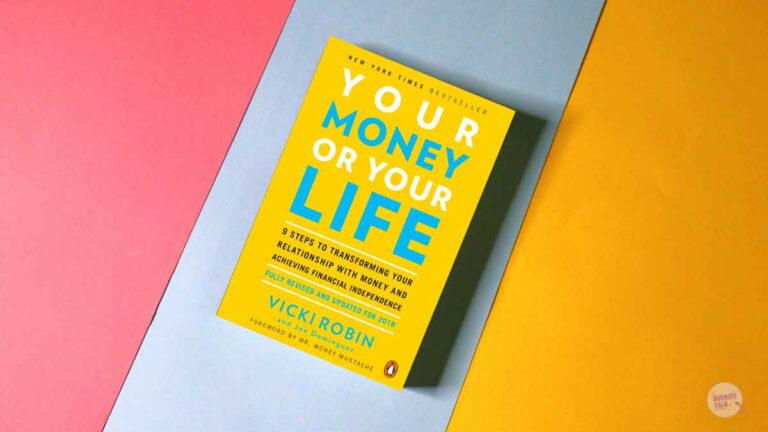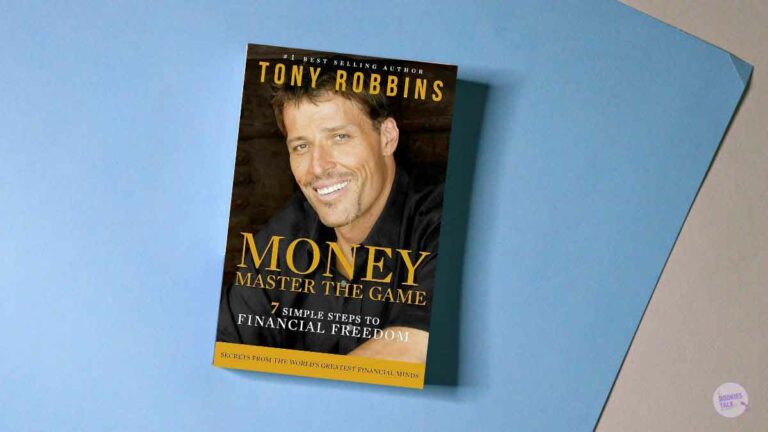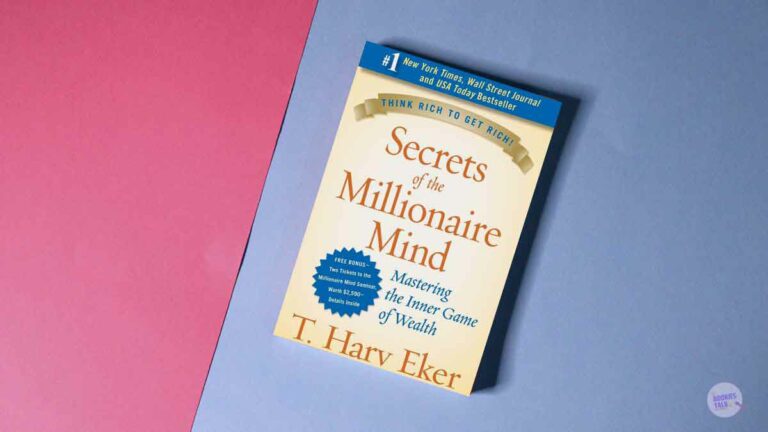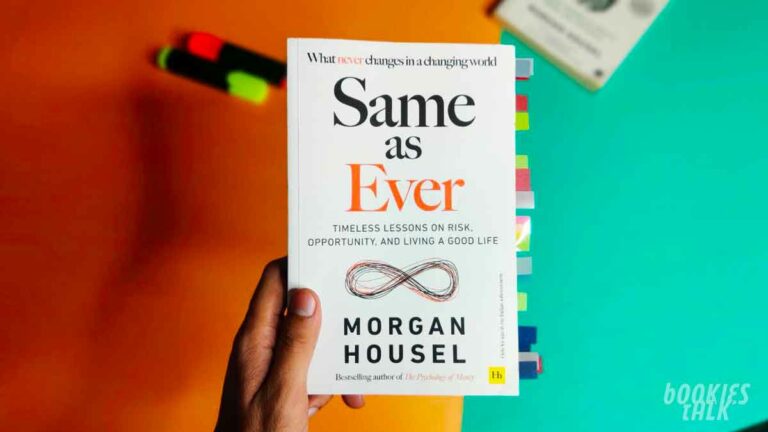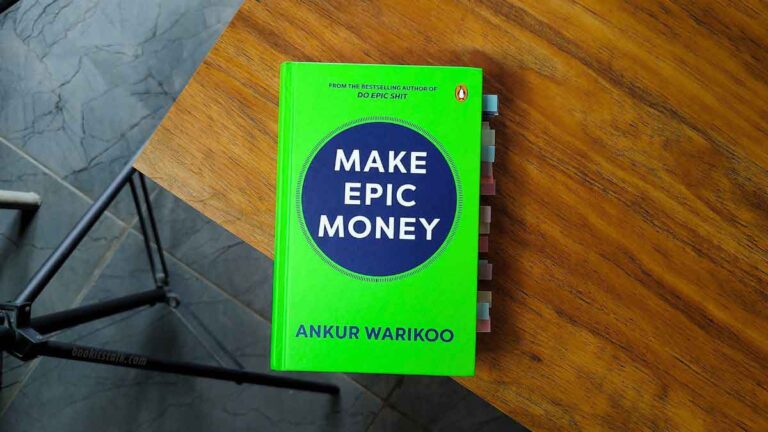The Intelligent Investor by Benjamin Graham
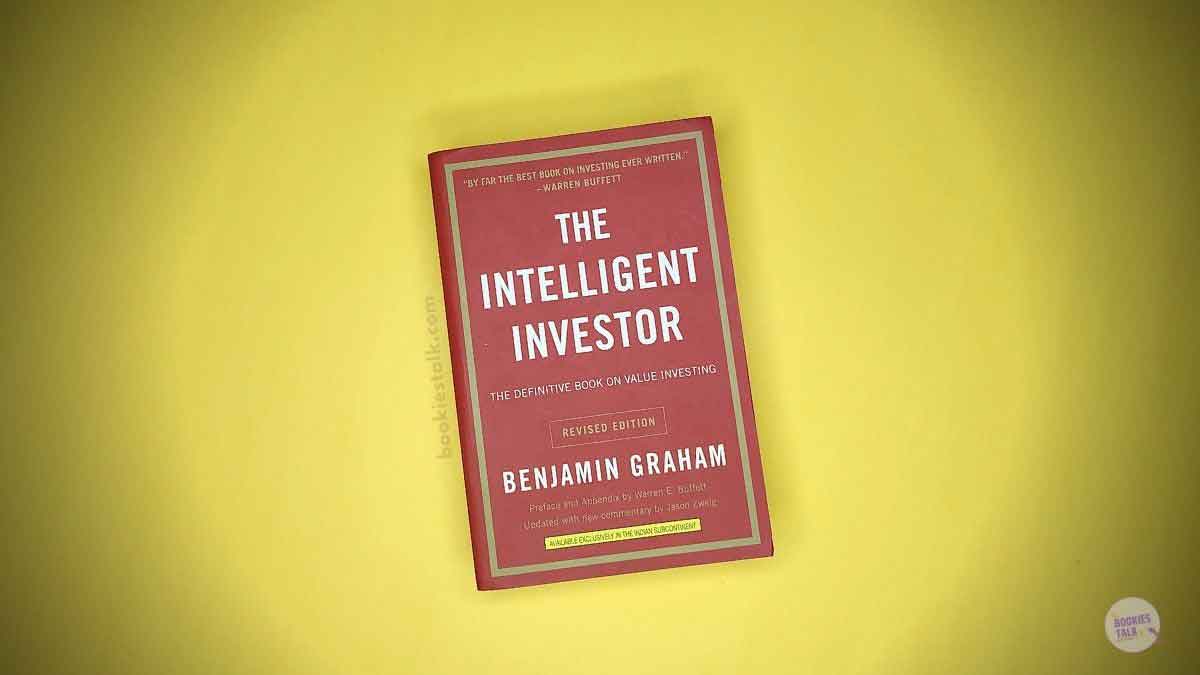
The Intelligent Investor is all about value investing—focusing on long-term growth instead of jumping on the hype and selling stocks after a year or two. Benjamin Graham, the author, shows you how to pick the right stocks and avoid common mistakes in the stock market.
For me, this book has taught me two big lessons that I’ll share in a bit.
If you’ve never invested a single rupee in the stock market, this is the perfect book to start with. But if you’ve been investing for a while, you might not find much new here.
Enter your email address To join the newsletter. I will be with you every Sunday at 9:00 AM (IST). See you on Sundays.
Book in Five Sentences
- Play It Safe: Always buy stocks for less than what they are really worth. This gives you some safety in case things don’t go as planned. It’s like having extra protection—you reduce the chance of losing money.
- Think Long Term: Don’t expect to make quick money. The stock market rewards those who stay invested for years. Benjamin Graham suggests holding on to your investments for at least 7 years. Give the company time to grow instead of worrying about daily price changes.
- Don’t Panic Over Market Changes: The stock market goes up and down every day, but that doesn’t mean you need to react every time. Focus on whether the company you’ve invested in is doing well, not on how its stock price changes daily.
- The Market Is Like a Moody Friend: Think of the stock market as a friend who offers you prices every day. Some days, this friend is too excited and asks for too much money. Other days, they’re too negative and sell things cheaply. Your job is to buy when they’re selling cheap and ignore them when they’re overpriced.
- Investing vs. Gambling: Investing means buying a piece of a company because you believe it will grow in the future. Gambling is like guessing—hoping the price will go up without knowing much about the company. Always focus on investing, not guessing.
The Intelligent Investor Summary
Benjamin Graham, who is often called the “father of value investing,” explains in The Intelligent Investor how to pick the right stocks and avoid common mistakes. He also shares historical examples that help you understand how the stock market works in simple terms.
You might have heard about Warren Buffett, his most famous student, who talks about these two important rules:
- Rule No. 1: Never lose money.
- Rule No. 2: Never forget Rule No. 1.
Now, if you’re into trading or short-term buying and selling, this book may not be for you. Traders should focus more on charts and trends, which this book doesn’t cover.
Here’s how I invest:
I only invest in stocks I believe in and feel comfortable holding for 10 years or more. I check the yearly performance of every company I’ve invested in. If I feel a company is no longer doing well or won’t do well in the future, I sell it and move my money to better options.
In simple terms, I’m a long-term investor.
For example, if you want steady and safe returns, let’s say around 10–12% per year, you can look at companies like HDFC Bank, Reliance, or HUL. These companies might not double or triple your money quickly, but they’re reliable and safer—kind of like fixed deposits but with better returns.
Related: Best 11 Personal Finance Books to Read Right Now
On the other hand, companies like Tata Motors, Tata Power, or Adani Power might give higher returns because they are in growing industries, like electric vehicles (EVs), which many believe are the future.
Important: I’m not a financial advisor. Always research before investing. Never invest just because someone else tells you to.
Now that we’ve covered this, let me share two big lessons I’ve learned from The Intelligent Investor that completely changed how I invest…
Trap of IPOs
Have you heard about PayTM? When they launched their IPO, it was priced at ₹2,150 per share. On the listing day, the stock was priced at ₹1,955 and dropped as low as ₹341.
So, if you had bought six shares at ₹2,150, your total investment of ₹12,600 would have turned into ₹9,384 on the same day.
Benjamin Graham explains why this happens:
“The IPO price is decided by the large stakeholders of the company. These stakeholders have invested money early on, and when the company goes public, they want to cash out and make a profit.”
Here’s a simple example:
Imagine a company “X” that’s about to go public. Before the IPO, it sells 10% of its shares to a big investor, “Y,” for ₹10 per share. When the IPO is launched, and the stock price is set higher, say ₹200 per share, “Y” makes a huge profit because they bought the shares at a much lower price.
When the company lists on the stock market, large investors often take their profits, and if the company’s performance isn’t great, the stock price drops. This is exactly what happened with PayTM.
So, the lesson here is simple: Be cautious with IPOs. Even if you think an upcoming IPO is promising, wait for the dust to settle. If the stock price corrects later and you believe in the company, that’s the time to consider investing.
Remember, the most important factor in the stock market is patience.
Invest for This Long
As I’ve already mentioned, when you’re investing in the stock market, focus on picking solid, well-established companies and stick with them for the long haul. According to Benjamin Graham, the minimum time you should stay invested in the stock market is seven years.
Here’s a quote from him that sums it up perfectly:
“A stock is not just a ticker symbol or an electronic blip; it is an ownership interest in an actual business, with an underlying value that does not depend on its share price.”
Personally, I aim to hold my investments for 10+ years, depending on the company I choose.
And here’s the beauty of long-term investing: You don’t need to monitor the stock market daily. Just pick a date, decide on the companies you believe in, and invest in them consistently every month—no matter what the market conditions are.
This approach saves time, reduces stress, and lets your investments grow steadily over the years.
The Intelligent Investor Review
If you’re new to investing and haven’t put a single penny into the stock market yet, The Intelligent Investor is the perfect book to start with. It’ll help you understand the basics and guide you in making informed decisions.
However, if you’ve been investing for a long time, you might already know most of what’s covered in this book, so you can consider skipping it.
That said, if you’re still curious and want to read it, I highly recommend focusing on Chapter 8 and Chapter 20.
Chapter 8: The Investor and Market Fluctuations
This chapter teaches you how to deal with the ups and downs of the market and not let emotions drive your decisions.
Chapter 20: “Margin of Safety” as the Central Concept of Investment
This is where you’ll learn about protecting yourself by investing with a margin of safety—essentially ensuring that you’re buying a stock below its actual value to minimize risks.
Even if you don’t read the whole book, these two chapters alone are worth your time!
Buy The Intelligent Investor:
The Intelligent Investor Quotes
“But investing isn’t about beating others at their game. It’s about controlling yourself at your own game.”
“The stock investor is neither right nor wrong because others agreed or disagreed with him; he is right because his facts and analysis are right.”
“invest only if you would be comfortable owning a stock even if you had no way of knowing its daily share price.”
“An investment operation is one which, upon thorough analysis, promises safety of principal and an adequate return. Operations not meeting these requirements are speculative.”
“People who invest make money for themselves; people who speculate make money for their brokers.”
“Americans are getting stronger. Twenty years ago, it took two people to carry ten dollars’ worth of groceries. Today, a five-year-old can do it. —Henny Youngman”
“On the other hand, investing is a unique kind of casino—one where you cannot lose in the end, so long as you play only by the rules that put the odds squarely in your favor.”
“The psychologists Daniel Kahnerman and Amos Tversky have shown when humans estimate the likelihood or frequency of an event, we make that judgment based not on how often the event has actually occurred, but on how vivid the past examples are.”
“It requires a great deal of boldness and a great deal of caution to make a great fortune; and when you have got it, it requires ten times as much wit to keep it. —Nathan Mayer Rothschild”
Love What You Read, You Might Like These too…
By the way, we also have a WhatsApp Channel! If you love reading, this is the perfect place for you to join—and the best part? It’s completely FREE!

